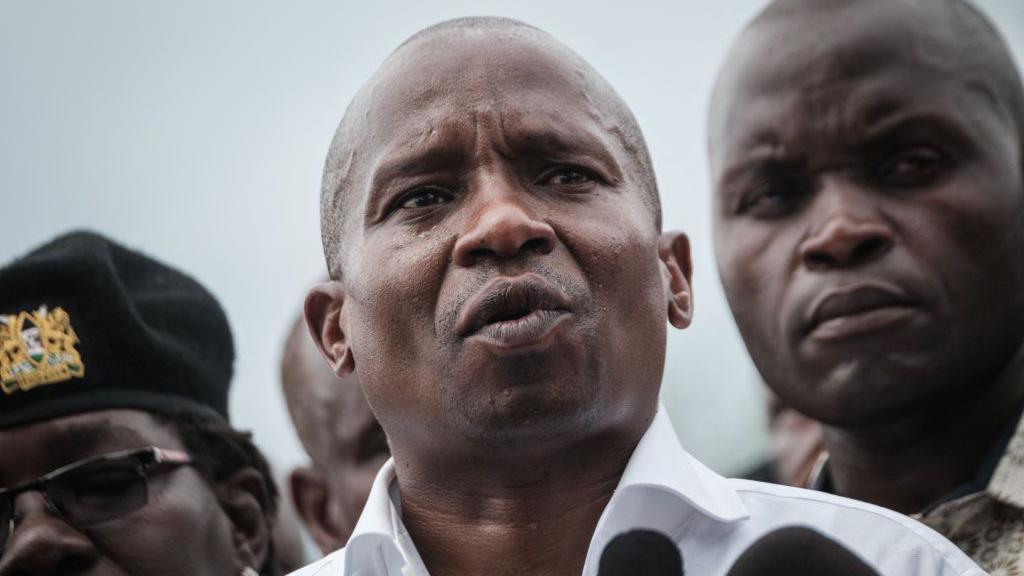Kithure Kindiki, recently nominated by parliament to become Kenya’s deputy president, is stepping into the spotlight following a significant political shake-up in the country. This decision follows the impeachment of Rigathi Gachagua, signaling a shift in leadership dynamics after a tumultuous period marked by nationwide tax protests that resulted in a deadly crackdown by police. Kindiki, who has served as the interior minister under President William Ruto for the past two years, has been a prominent figure amid these tensions. The protests, which erupted in June, left more than 40 people dead and hundreds injured. Despite the public outcry and calls for accountability regarding police actions, Kindiki defended the security forces, citing their restraint in enforcement efforts, a move that has drawn ire from rights groups pushing for justice and transparency.
Kindiki’s political journey is closely intertwined with that of President Ruto, whom he has supported for many years, dating back to when he served as Ruto’s lawyer in an International Criminal Court case concerning the violent aftermath of Kenya’s 2007 elections. His legal battles, alongside Ruto’s political rise, have cemented Kindiki’s position within the political arena, as he transitioned from law practice to academia and then to politics. Educated with a master’s degree and PhD from the University of Pretoria, he boasts a robust portfolio of academic publications and experience that spans public policy, governance, and legislative affairs, which he has utilized effectively throughout his political career.
Entering politics as the senator for Tharaka-Nithi County in 2013, Kindiki quickly climbed the ranks, serving as Senate majority leader and later as deputy speaker. His tenure has been marked by significant political developments and crises, including a tragedy linked to a cult’s alleged influence that saw multiple deaths in a forest. Kindiki’s responsiveness to crises has showcased his role as a public figure tasked with addressing the nation’s grief and outrage regarding compelling human tragedies. His statement describing a mass grave discovery as a “massacre” highlighted his keen awareness of public sentiment, even as he maintained a close partnership with Ruto.
The recent political maneuvering in Kenya, culminating in Gachagua’s impeachment and Kindiki’s swift rise to probable deputy leadership, underscores the intricate alliances and rivalries within the ruling party. While Gachagua was initially chosen for his influence and wealth, Kindiki’s selection reflects a strategic move to consolidate support from the Mount Kenya region, an area crucial to Ruto’s political base. His articulate demeanor and legal acumen position him as a figure capable of fostering a more loyal cabinet dynamic that aligns with Ruto’s administration goals, particularly in light of challenges such as the anti-tax protests.
As Kindiki awaits the Nairobi High Court’s ruling on Gachagua’s impeachment, the potential of an extended political standoff looms over his impending swearing-in. Anticipation grows regarding how Kindiki will navigate these political waters and whether he can effectively serve as a stabilizing force within the administration. Observers are keenly watching, as the decision may not only impact Kindiki’s future but also the broader political landscape in Kenya, especially amid growing demands for reforms and accountability. The scrutiny on his role in managing protests and police conduct during recent unrest places him under significant pressure to balance administrative loyalty with the urgent needs for justice and societal peace.
In summary, Kithure Kindiki’s ascent as Kenya’s likely deputy president comes at a time of great unrest and transformation for the nation. His mixed legacy as a politician who has faced immense challenges—both in managing violent protests and crises—while also holding substantial academic and legal credentials, suggests that his leadership will be pivotal in determining the administration’s response to ongoing social pressures and human rights concerns. As he prepares to possibly assume office, all eyes are on how he will maneuver the expectations that come with such a role, weighted by the backdrop of public demands for justice and governmental accountability. The evolving political narrative is not just a reflection of individual ambition but also a broader commentary on the urgent need for effective governance in Kenya’s complex landscape.

